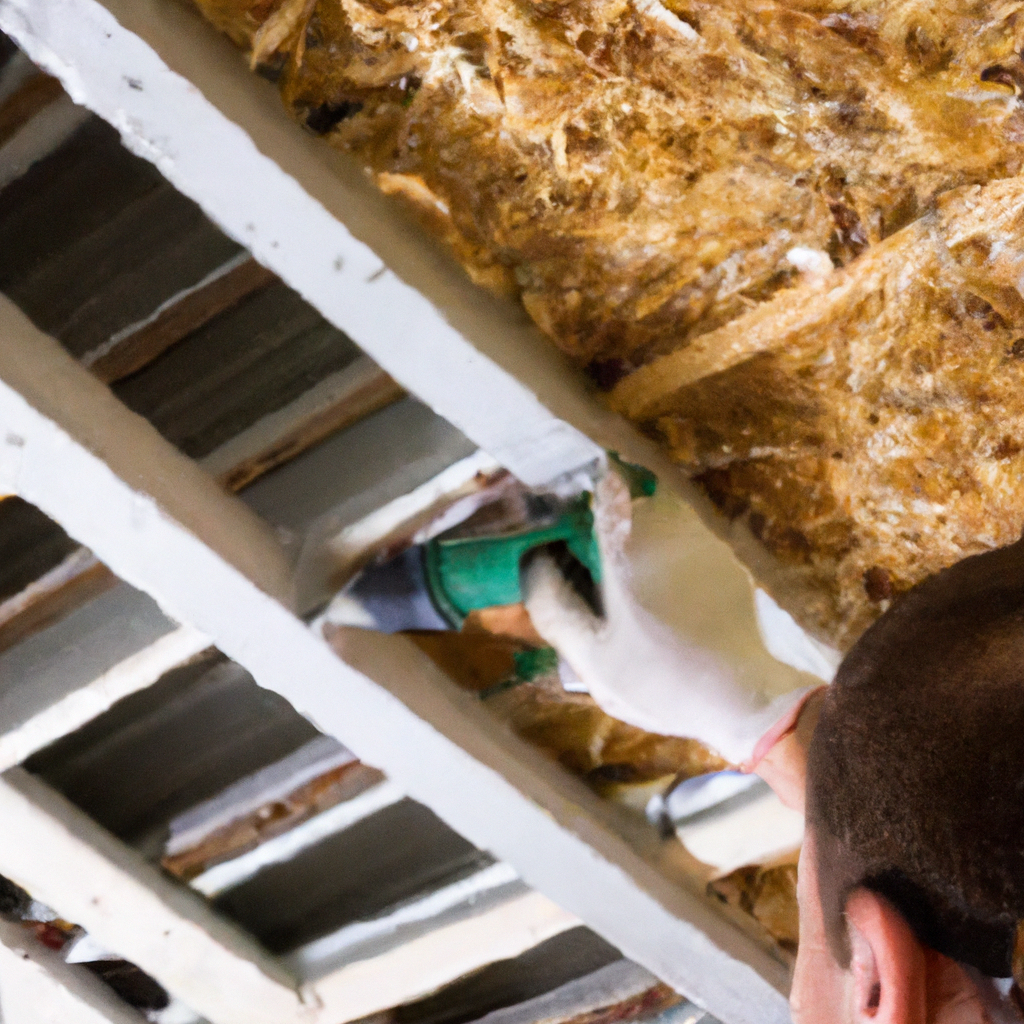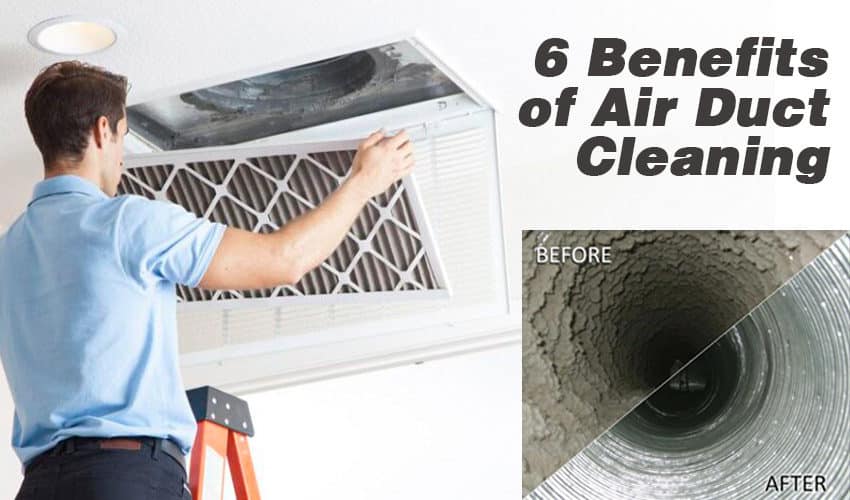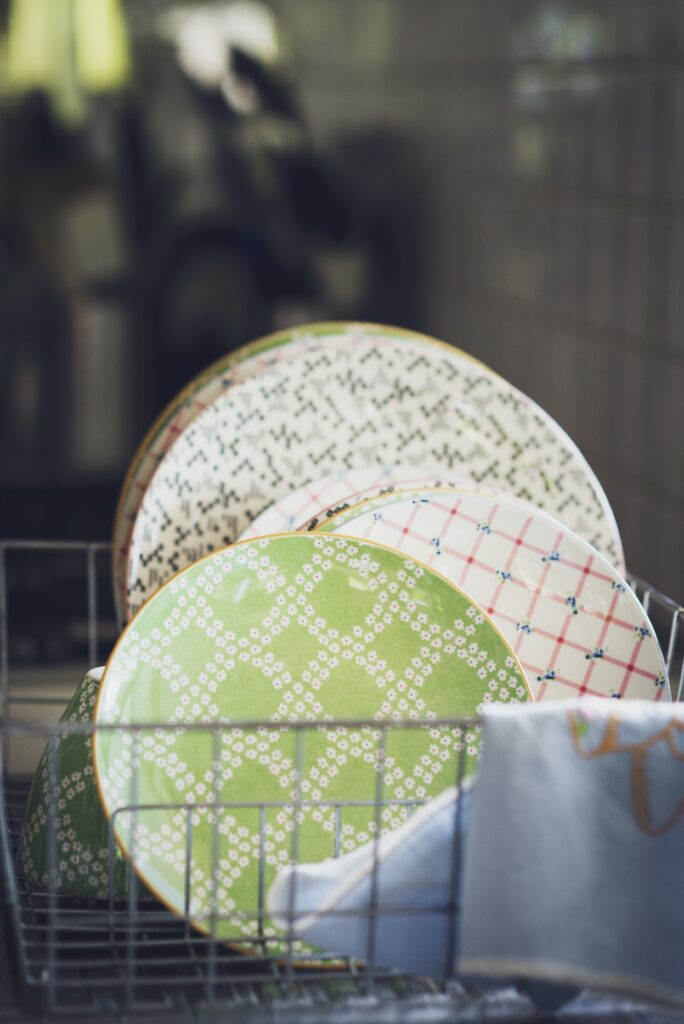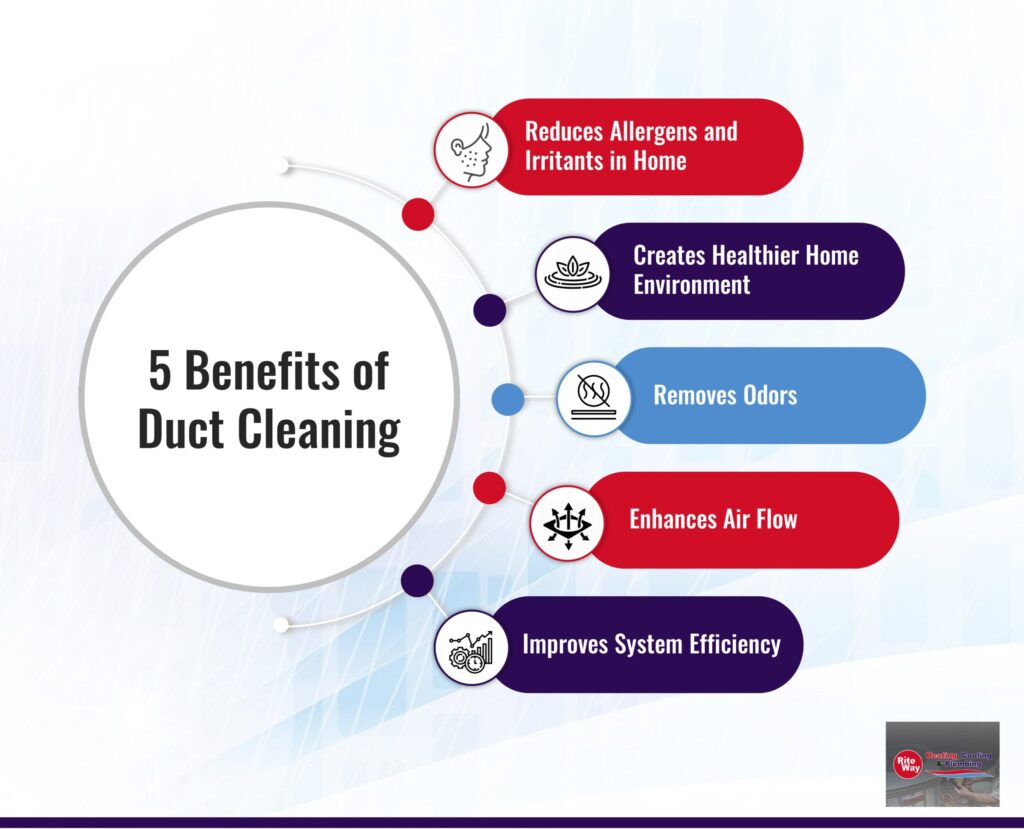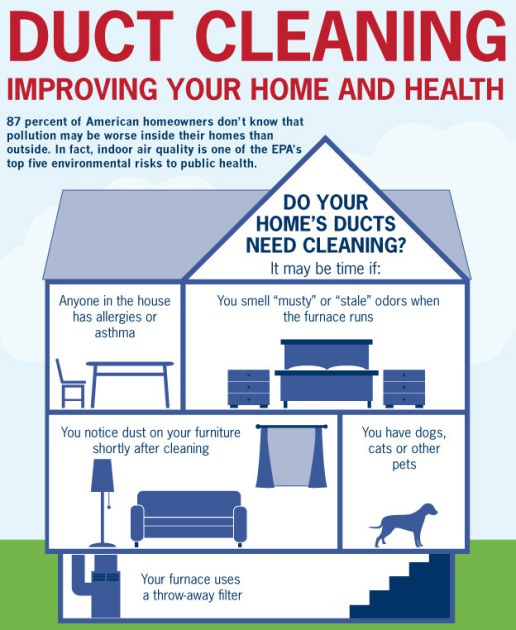If you’re interested in starting your own air duct cleaning business, it’s essential to obtain the necessary license. Obtaining an air duct cleaning license not only ensures that you’re operating legally, but it also demonstrates your commitment to providing high-quality service to your customers. In this article, we’ll explore the steps you need to take to obtain an air duct cleaning license, including the required training and certifications, as well as the benefits it can bring to your business. So, let’s get started on your journey to becoming a licensed air duct cleaner!


Understanding the Importance of an Air Duct Cleaning License
If you’re considering a career in the air duct cleaning industry, it is crucial to understand the importance of obtaining a license. A license serves as proof that you have undergone the necessary training and met the requirements set by the licensing authority. It not only enhances your credibility as a professional but also ensures that you are adhering to the industry standards and regulations.
The Need for Licensing in the Duct Cleaning Industry
Air duct cleaning plays a significant role in maintaining healthy indoor air quality. As air ducts collect dust, debris, and even mold over time, it becomes essential to clean them to prevent the circulation of pollutants throughout a building. With the rising awareness of the importance of clean air, there has been a surge in demand for professional air duct cleaning services. However, to safeguard the interests of both consumers and professionals, licensing has become a necessary requirement in the industry.
Licensing guarantees that technicians have the knowledge and expertise to effectively and safely clean air ducts. It ensures that they adhere to proper cleaning techniques and industry guidelines, minimizing the risk of errors or accidents. Furthermore, licensing also helps protect consumers from unscrupulous individuals or companies who may offer substandard services. By requiring professionals to obtain a license, the industry promotes professionalism and ensures a certain level of quality in the services provided.
The Benefits of Having a Valid License
Obtaining a valid air duct cleaning license comes with several benefits. Firstly, it allows you to confidently market your services as a licensed professional. Displaying your license gives potential clients the assurance that you have met the necessary requirements and possess the skills to perform the job effectively. A license can significantly enhance your reputation and attract more customers.
Having a license also opens up opportunities for professional growth and advancement. Many larger organizations or government contracts require contractors to hold a valid license before considering them for projects. By obtaining a license, you can broaden your client base and increase your chances of securing high-profile contracts.
Furthermore, a valid license ensures that you are protected from legal liabilities. In case of any mishaps or accidents during the job, having a license demonstrates that you have taken necessary precautions and followed the industry standards. This can provide you with peace of mind and protect you from potential legal actions.
The Consequences of Operating Without a License
Operating without a license in the air duct cleaning industry can have serious consequences. It not only undermines your professional credibility but can also lead to legal issues and financial penalties. If you are caught offering services without a proper license, you may face fines, legal fees, and even the potential suspension of your business operations. This can severely damage your reputation and hinder your ability to operate in the industry.
Moreover, operating without a license can harm your clients. Without the necessary training and knowledge, you may inadvertently cause damage to their property or fail to provide the level of service they expect. This can result in dissatisfied customers, negative reviews, and potential legal claims against you. Therefore, it is essential to recognize the importance of obtaining a license and complying with the licensing requirements.
Knowing the Licensing Requirements
Before you can obtain an air duct cleaning license, it is essential to familiarize yourself with the licensing requirements. These requirements typically include eligibility criteria, necessary documents, and applicable fees. By understanding these requirements, you can ensure a smooth and successful license application process.
Eligibility Criteria for Obtaining the License
The specific eligibility criteria for obtaining an air duct cleaning license may vary depending on your location. However, certain common requirements usually exist across jurisdictions. These requirements often include a minimum age limit, educational background, and prior experience in the industry.
To become eligible for an air duct cleaning license, you may need to demonstrate a certain level of experience in the field. This can often be achieved through working as an apprentice or having a specified number of hours in air duct cleaning. Additionally, some jurisdictions may require you to undergo specific training courses or obtain certifications before you can apply for a license.
Documents Needed for the Application
When applying for an air duct cleaning license, you will typically need to submit specific documents to support your application. These documents may include copies of your identification, educational certificates, evidence of relevant training or apprenticeships, and any other documentation required by the licensing authority.
It is crucial to ensure that you have all the necessary documents readily available and in the required format before submitting your application. Failing to provide the requested documents or submitting incomplete paperwork can lead to delays or rejection of your application.
Applicable Fees and Costs
Obtaining an air duct cleaning license comes with certain financial considerations. The licensing authority typically charges fees for application processing, evaluation, and issuance of the license. These fees may vary depending on your jurisdiction.
In addition to the application fees, you should also consider other costs associated with obtaining a license. This may include the cost of training courses, study materials, and any other expenses related to meeting the licensing requirements. By budgeting for these costs in advance, you can ensure that you are prepared to pursue your license without any financial surprises.
Recognizing Different Types of Air Duct Cleaning Licenses
Air duct cleaning licenses can be categorized into different types based on the nature of the work you intend to undertake. Understanding these different license types can help you determine the most relevant license for your specific situation and area of expertise.
Residential License
A residential air duct cleaning license is designed for professionals who primarily offer their services to residential properties. If you specialize in cleaning air ducts in houses or apartments, obtaining a residential license is essential. This license ensures that you have the skills and knowledge to address the unique needs and challenges associated with residential air duct systems.
Commercial License
A commercial air duct cleaning license is required if you intend to work with commercial establishments such as offices, retail spaces, or other commercial buildings. Commercial air ducts often present different complexities and requirements compared to residential systems. Having a commercial license demonstrates your ability to handle these larger-scale projects and cater to the specific needs of commercial clients.
Industrial License
An industrial air duct cleaning license is necessary for professionals who work in industrial settings, such as factories, warehouses, or manufacturing plants. Industrial air ducts tend to accumulate a significant amount of debris, pollutants, and sometimes hazardous materials. This license ensures that you possess the necessary skills, knowledge, and safety protocols to effectively clean and maintain industrial air duct systems.
Specialist Licenses
In addition to the broad categories of residential, commercial, and industrial licenses, there may also be specialist licenses available within your jurisdiction. These specialist licenses cater to niche areas within the air duct cleaning industry. Examples include licenses for mold remediation specialists or HVAC system inspectors. Obtaining a specialist license can help you differentiate yourself in the market and provide specialized services to clients with specific needs.
Familiarizing with the Licensing Body
To obtain an air duct cleaning license, it is essential to familiarize yourself with the licensing body responsible for overseeing the licensing process. Understanding the roles and responsibilities of the licensing authority enables you to navigate the application process efficiently and effectively.
Roles and Responsibilities of the Licensing Authority
The licensing authority is responsible for regulating the air duct cleaning industry and ensuring that professionals adhere to the required standards. They establish the licensing requirements, conduct evaluations, and issue licenses to qualified individuals. Additionally, the licensing body may also enforce disciplinary actions, such as license suspensions or revocations, for non-compliance with regulations.
How to Interact with the Licensing Body
When applying for an air duct cleaning license, you will likely need to interact with the licensing body directly. This may involve submitting your application, responding to any requested information or documentation, and communicating regarding the status of your application. It is essential to follow the instructions provided by the licensing body and maintain open lines of communication to ensure a smooth application process.
Understanding the Licensing Laws and Regulations
To ensure compliance with licensing laws and regulations, it is crucial to familiarize yourself with the specific requirements set forth by the licensing authority. These requirements may include codes of conduct, ethical standards, and specific practices that must be followed when providing air duct cleaning services.
By understanding the licensing laws and regulations, you can ensure that your operations align with the industry standards and avoid potential penalties or legal issues. Staying updated with any changes or amendments to these laws ensures that you remain in good standing with the licensing body.


Undergoing the Necessary Training
Training plays a crucial role in obtaining an air duct cleaning license. It equips you with the necessary knowledge, skills, and expertise to excel in the field. Depending on your location, there may be specific training requirements that you need to fulfill before you can apply for a license.
Enrolling for Air Duct Cleaning Courses
To obtain the required training, consider enrolling in air duct cleaning courses. These courses cover essential topics such as HVAC systems, air quality regulations, cleaning techniques, and safety protocols. They provide you with a comprehensive understanding of the air duct cleaning process and the knowledge to perform the job effectively.
Look for reputable training providers or institutions that offer recognized air duct cleaning courses. Ensure that the courses align with the licensing requirements imposed by the licensing authority in your jurisdiction. Undertaking these courses not only prepares you for the license application process but also enhances your skills as an air duct cleaning professional.
Hands-On Training and Apprenticeships
In addition to formal courses, hands-on training and apprenticeships can provide valuable practical experience in the field. Working closely with experienced professionals allows you to learn from their expertise and gain a deeper understanding of the challenges and intricacies involved in air duct cleaning.
Consider reaching out to established air duct cleaning companies or professionals in your area and inquire about potential apprenticeship opportunities. Participating in hands-on training not only deepens your practical knowledge but also exposes you to real-world scenarios that you are likely to encounter during your career.
Online Learning Opportunities
If traditional classroom settings are not accessible or convenient for you, online learning opportunities can be a viable alternative. Many reputable training providers offer online courses and training materials that cover the necessary topics for obtaining an air duct cleaning license.
Online learning allows you to study at your own pace and in the comfort of your own home. However, it is important to choose credible online training providers and ensure that their courses meet the licensing requirements of your jurisdiction. Make sure to take advantage of any interactive elements, such as virtual simulations or practical assignments, to enhance your learning experience.
Passing the Required Examinations
To obtain an air duct cleaning license, you will typically need to pass a series of examinations. These examinations evaluate your understanding of the industry, your knowledge of proper cleaning techniques, and your ability to apply the acquired skills in real-world scenarios. Proper preparation is key to success in these examinations.
Understanding the Examination Structure
Different licensing authorities may have variations in the examination structure. It is important to familiarize yourself with the format, duration, and content of the examination specific to your jurisdiction. This will enable you to tailor your preparation and allocate sufficient time for each section of the examination.
Examinations often include multiple-choice questions, practical demonstrations, or written assessments. Understanding the examination structure allows you to prioritize your study materials and focus on areas that may carry more weight in the assessment process.
Preparation Tips and Strategies
Preparing for an air duct cleaning examination requires a systematic approach. Begin by creating a study schedule that allows you to cover all the relevant topics within the allocated time. Utilize study materials recommended by the licensing authority or reputable training providers.
Practice mock exams and sample questions to familiarize yourself with the format and style of the examination. This will help you identify areas where you may need additional study and improve your time management skills.
Consider forming study groups with fellow aspiring air duct cleaning professionals. Collaborating with others allows you to benefit from different perspectives, share knowledge, and enhance your understanding of the subject matter. Additionally, seek guidance and mentorship from experienced professionals who have already obtained their licenses.
Taking the Exam and Awaiting the Results
On the day of the examination, arrive early, ensuring that you have all the necessary identification and materials required. Stay calm and focused throughout the examination, carefully reading and interpreting each question. Pay attention to any time limits for each section of the examination, and manage your time accordingly.
Once you have completed the examination, submit your answer sheets or any required documentation as instructed. The waiting period for the examination results may vary, depending on the specific procedures followed by the licensing authority. Use this time to relax and recharge while anticipating a positive outcome.


Applying for the License
After successfully completing the necessary training and passing the required examinations, it is time to apply for your air duct cleaning license. The application process typically involves completing forms, gathering required documentation, and paying the applicable fees.
Completing the Application Form
The application form is a crucial component of the license application process. It collects important information about your background, education, training, and professional experience. Take your time to carefully fill out the form, ensuring that all the required fields are complete and accurate. Any errors or omissions can lead to delays or rejection of your application.
Submitting Necessary Documentation
Supporting documents are necessary to validate the information you provide in your application form. These documents may include copies of your identification, educational certificates, training course completion certificates, and any other documents specified by the licensing authority.
Organize your documents in a systematic manner and ensure that they are easily accessible when you are ready to submit your application. Double-check that you have included all the required documents, as requested by the licensing authority. Missing or incomplete documentation can result in delays in processing your application.
Submitting the Application and Paying the Licensing Fees
Once you have completed the application form and gathered all the necessary documentation, it is time to submit your application. Follow the submission guidelines provided by the licensing authority carefully. This may involve mailing your application or submitting it online through a designated portal.
In addition to the application submission, you will likely need to pay the applicable licensing fees. These fees may be non-refundable and should be paid in accordance with the instructions provided by the licensing authority. Ensure that you include the required payment with your application to avoid any delays in the processing of your license.
Maintaining and Renewing Your License
Obtaining a license is not the end of the journey; it is essential to maintain and renew your license to continue operating as an air duct cleaning professional. Understanding the renewal process and fulfilling the necessary requirements is critical to ensuring the longevity of your license.
Understanding the Renewal Process
Licenses typically have an expiration date and need to be renewed periodically. Familiarize yourself with the renewal process outlined by the licensing authority. This process may involve providing updated documentation, paying renewal fees, and demonstrating continued compliance with licensing laws and regulations.
It is important to keep track of your license expiration date and start the renewal process well in advance. Failure to renew your license on time may result in suspension of your license and limitations on your ability to provide air duct cleaning services legally.
Keeping up with Continuing Education Requirements
To maintain your license, you may be required to participate in ongoing education and professional development activities. These continuing education requirements ensure that licensed professionals stay abreast of the latest industry trends, advancements, and regulations.
Research the specific continuing education requirements mandated by the licensing authority in your jurisdiction. This may involve attending seminars, workshops, or completing additional training courses. Keeping up with the continuing education requirements not only fulfills the licensing obligations but also enhances your knowledge and skillset as an air duct cleaning professional.
Taking Care of License Suspension or Revocation
In certain circumstances, your air duct cleaning license may be suspended or revoked. This can occur if you fail to comply with licensing laws and regulations, engage in unethical or illegal practices, or if you do not meet the renewal requirements.
In the event of license suspension or revocation, it is crucial to take immediate action to rectify the situation. The licensing authority may provide a process for reinstating your license or appealing their decision. It is essential to adhere to the instructions provided by the licensing authority to resolve any issues promptly.


Expanding Your Business with Additional Licensing
Once you have obtained your initial air duct cleaning license, you may consider expanding your business by obtaining additional licenses. This allows you to offer a broader range of services, target different markets, or operate in multiple jurisdictions.
Obtaining Multi-State Licenses
If you intend to provide air duct cleaning services in multiple states, you may need to obtain licenses from each state where you plan to operate. Research the licensing requirements specific to each state and understand any differences or additional requirements compared to your initial license.
Obtaining licenses in multiple states can open up opportunities for expanding your client base and accessing a wider range of projects. However, managing the licensing requirements and compliance in different states may require additional administrative efforts and ongoing maintenance.
Getting Additional Licenses for Expanded Services
As your business grows, you may want to offer additional services beyond air duct cleaning. These services could include mold remediation, HVAC system inspections, or other related specialties. To provide these services legally, you may need to obtain additional licenses or certifications that correspond to the specific services you aim to offer.
Research the licensing requirements for each additional service you wish to add to your portfolio. Ensure that you meet the necessary training, experience, and documentation requirements. Obtaining additional licenses allows you to diversify your service offerings and cater to a wider range of client needs.
Understanding Interstate Licensing Reciprocity
Some jurisdictions have agreements in place that recognize licenses issued by other states or territories. This is known as licensing reciprocity or mutual recognition. It allows licensed professionals from one jurisdiction to practice in another jurisdiction without going through the entire licensing process again.
Research whether the jurisdiction where you hold your initial license has any reciprocity agreements with other states or territories. This can save you time and effort when expanding your business across different jurisdictions. However, it is essential to understand the specific requirements and limitations associated with licensing reciprocity to ensure compliance in each jurisdiction where you operate.
Avoiding Common Mistakes While Applying for a License
When applying for an air duct cleaning license, it is important to avoid common mistakes that can hinder your application process or jeopardize your chances of obtaining a license.
Ignoring the Details in the Application Form
The application form is a critical component of the license application process. It is important to pay attention to every detail and ensure that all the required fields are complete and accurate. Take your time to read and understand each question before providing a response.
Avoid rushing through the application form or glossing over any instructions. Even a minor error or omission can delay the processing of your application or result in its rejection. Review your completed application form thoroughly before submission to minimize the risk of mistakes.
Not Preparing Properly for the Exam
Proper preparation is key to success in the licensing examination. Failing to dedicate sufficient time and effort to your exam preparation can result in poor performance and potentially failing the exam.
Create a study plan that allows you to cover all the relevant topics within the allocated time. Utilize study materials provided by reputable training providers or recommended by the licensing authority. Practice mock exams and sample questions to familiarize yourself with the examination format and style. Adequate preparation increases your confidence and improves your chances of passing the examination.
Failing to Renew the License on Time
Maintaining the validity of your air duct cleaning license requires timely renewal. Failing to renew your license on time can result in its expiration, which may incur penalties or temporary suspension of your ability to provide services legally.
Keep track of your license expiration date and initiate the renewal process well in advance. Plan ahead to ensure that you have all the necessary documentation and fees ready before the renewal deadline. By staying proactive in the renewal process, you can avoid unnecessary disruptions to your business operations.
In conclusion, obtaining an air duct cleaning license is a crucial step in establishing yourself as a professional in the industry. It not only enhances your credibility but also ensures that you adhere to industry standards and regulations. By understanding the licensing requirements, undergoing the necessary training, and successfully completing the required examinations, you can pave the way for a successful career in air duct cleaning. Remember to maintain and renew your license, consider expanding your business with additional licenses, and avoid common mistakes throughout the application process. With a valid license in hand, you can confidently offer your services and contribute to maintaining healthy indoor air quality for your clients.
